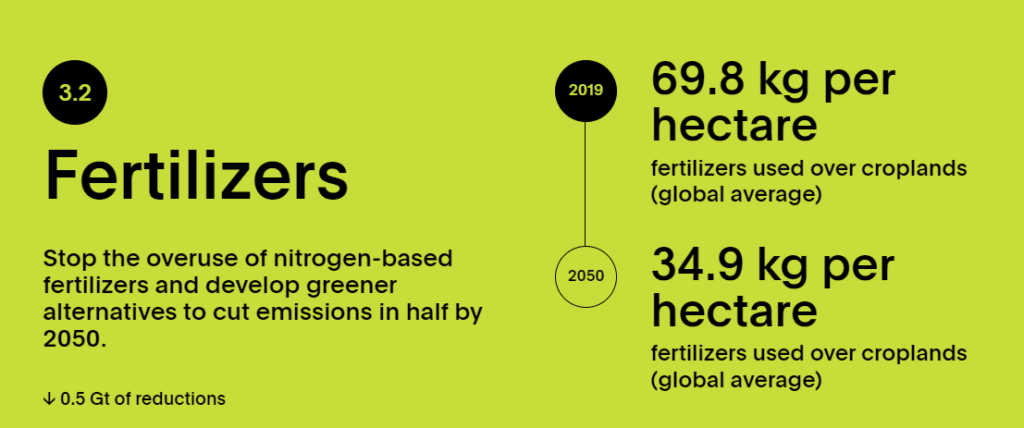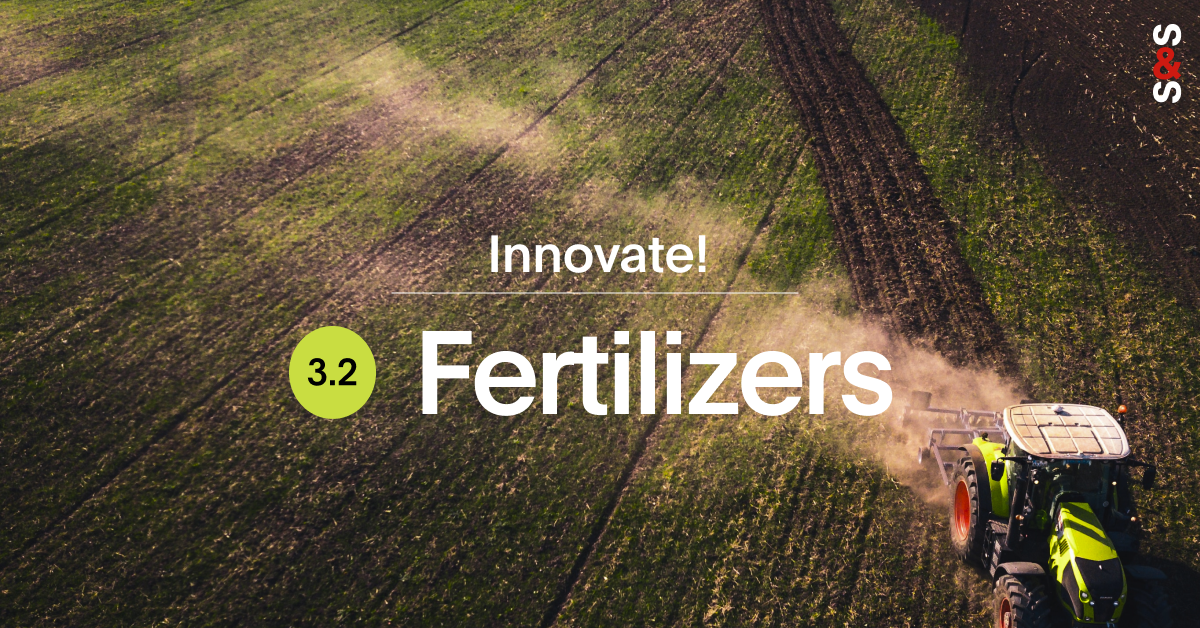We must rethink how we grow our food. We can do this without sacrificing global food security.
As the global population continues to grow, our food production needs to increase while at the same time reducing the industry’s greenhouse gas emissions. One vital element in achieving this goal is to develop better fertilizers and more sustainable ways to use them. At present, fertilizers account for a total of 1.5 gigatons of emissions per year.

Synthetic fertilizers, largely nitrogen-based, are widely used to enhance the growth of crops. Global fertilizer efficiency, which quantifies the rate at which plants actually take up the nitrogen used in fertilizers, is only 42 percent. The rest contributes to emissions. We can improve on those numbers.
There are two ways to reduce fertilizer emissions: changing how we produce it and changing how we use it. At the point of production, we can use renewable energy such as wind or solar to make fertilizer. But since more carbon is emitted when fertilizers are used, changing farming practices on the ground will be essential. Improving irrigation systems, planting crops that can better absorb nitrogen-based fertilizers, and applying the right amount of fertilizer at the right time will all have enormous impact on agricultural emissions. A mix of political and financial incentives could move the needle in this area.
Beyond changing behavior, we could also explore alternative fertilizers that do not use nitrogen. A slew of sustainable startups are looking to disrupt the 100-year-old, nitrogen-based fertilizer supply chain. Among the cutting-edge technologies that investors should be watching, biofertilizers add energy to soil-based microbes. Phosphate fertilizers release critical nutrients naturally.
With new delivery methods and precision techniques for fertilizer use, farmers can cut emissions of planet-punishing nitrous oxide with no harm to yields. But we still have a long way to go. Nitrogen emissions from fertilizers have held steady for the past three years, and we need to urgently move toward reduction.










